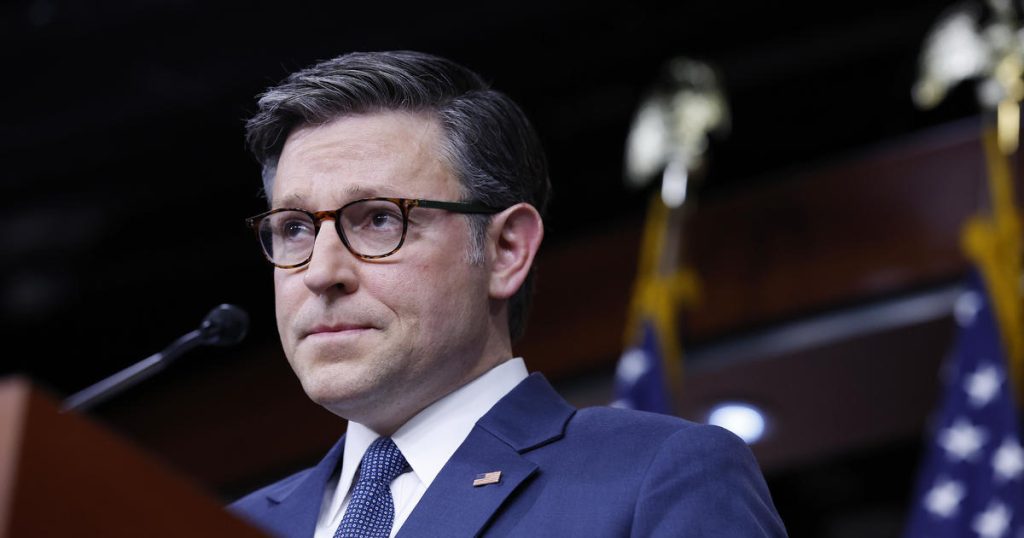The House is preparing to vote on a stopgap measure to keep the government funded for three months after Speaker Mike Johnson chose to embrace a clean temporary funding measure that will require support from Democrats to pass. Initially, the House rejected Johnson’s plan for a six-month funding extension paired with a noncitizen voting proposal, leading the speaker to opt for a shorter funding extension without the controversial voting measure to avoid a government shutdown before Election Day. Despite facing setbacks with House Rules Committee approval, Johnson remains confident in the passage of the continuing resolution, emphasizing the importance of funding the government and securing the election.
Johnson described the legislation as a “very narrow, bare bones” temporary measure that the House must pass to avoid a government shutdown. While acknowledging that continuing resolutions are not ideal, Johnson emphasized the necessity of preventing a shutdown, even if it means resorting to a short-term fix. The vote on the funding measure is expected to draw more support from Democrats than Republicans due to conservative opposition to the resolution, creating tension within the House Republican leadership. Democrats have expressed willingness to work in a bipartisan manner to ensure the passage of the funding bill before the House recesses until after the upcoming election.
Following the vote to fund the government for three months, the House is set to take a lengthy recess and will face a pre-holiday deadline to prevent a shutdown upon their return. House Republicans have expressed concern about the potential outcome, but Johnson has made it clear that he opposes resorting to an omnibus funding package and plans to approve the full-year spending bills after the election. The Senate will also need to act to prevent a shutdown ahead of the Oct. 1 deadline, with Majority Leader Chuck Schumer urging the House to approve the continuing resolution quickly to avoid any disruptions. The Senate has reached a time agreement to expedite the passage of the stopgap measure once it reaches the upper chamber, allowing senators to address the funding issue swiftly before the deadline.
Overall, the focus is on ensuring the government remains funded without any disruptions, particularly in the lead-up to a significant election. While facing challenges and setbacks in the legislative process, both the House and Senate are working to pass the necessary funding measures to prevent a government shutdown. The bipartisan effort to reach an agreement on the temporary funding resolution reflects a commitment to maintaining stability and ensuring essential government services continue uninterrupted. With the impending vote and subsequent Senate action, lawmakers are prioritizing the needs of the public and the functioning of the government during a critical period.


